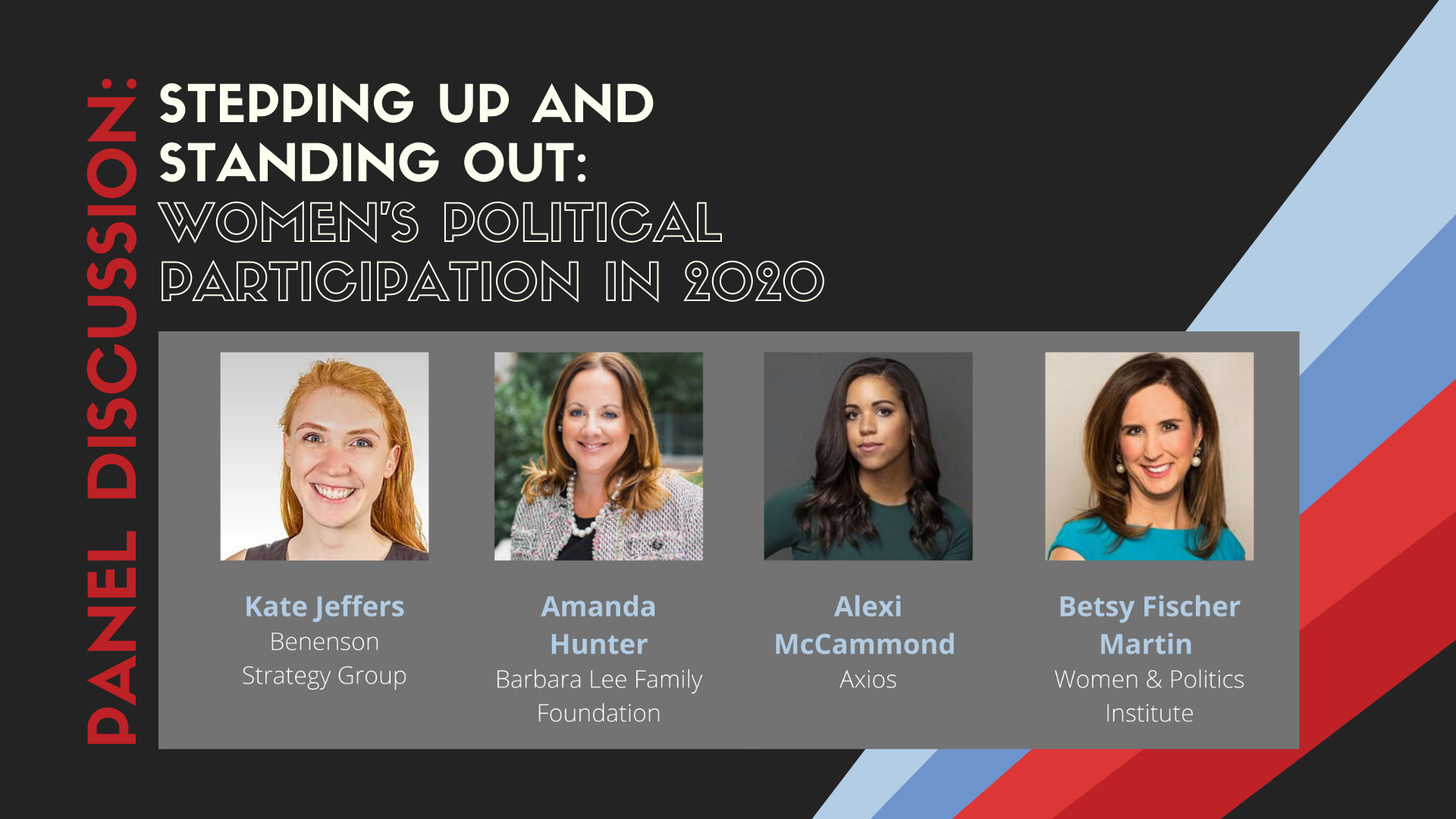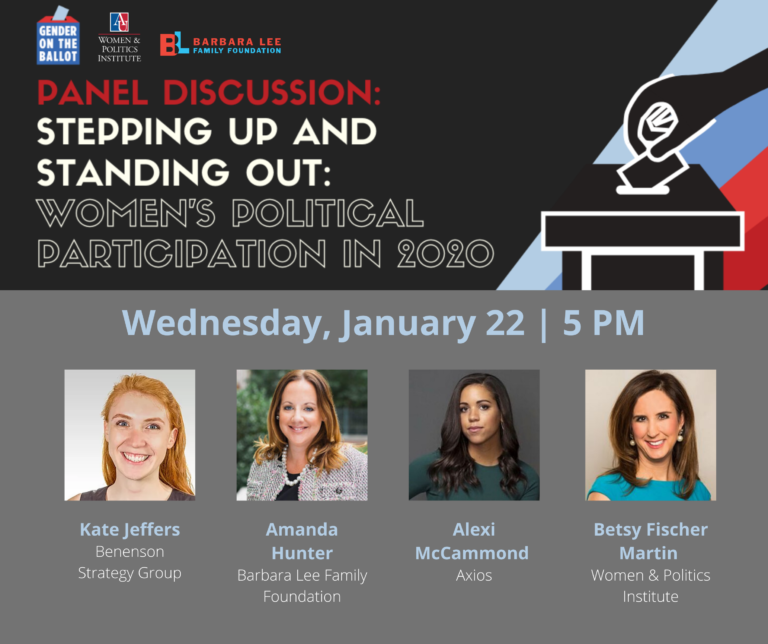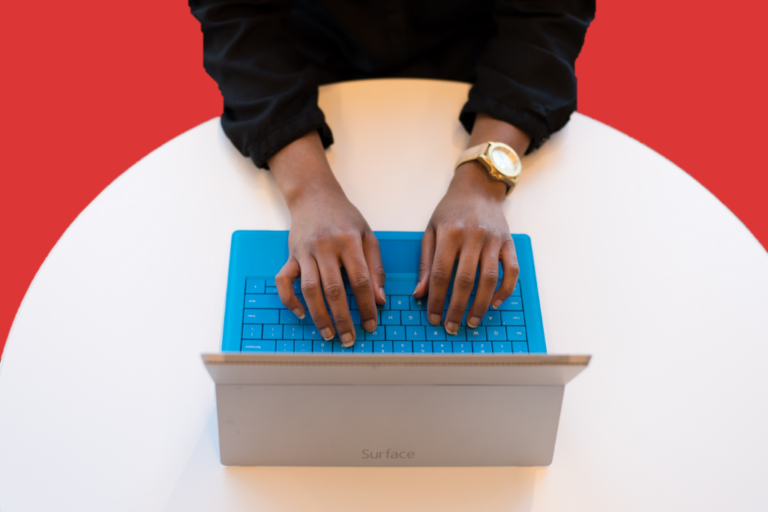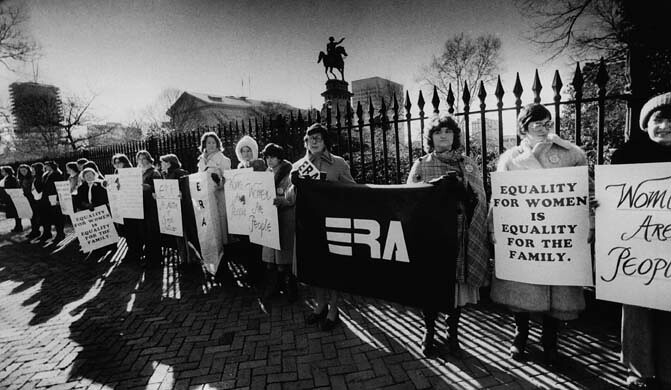Join us on January 22, 2019 at 5pm ET at American University for a panel discussion on…
3 Things to Remember about Women’s Political Participation

In case you couldn’t make it, you can watch the full panel here.
On January 22nd at American University, experts gathered for a panel discussion about Gender on the Ballot’s latest research: “Stepping Up and Standing Out: Women’s Political Participation in 2020.”
“Beyond women voting — which they are certainly doing in record numbers – we are peeling back to look at why they are participating and, if not, how can we break down those barriers,” said Betsy Fischer Martin, Executive Director of American University’s Women & Politics Institute, in her opening remarks. “We know the more engaged women are in politics, the more apt they are to run for office. I am encouraged by the data.”
Fischer Martin led a discussion with Alexi McCammond, a political reporter with Axios, Amanda Hunter, Research and Communications Director of The Barbara Lee Family Foundation, and Kate Jeffers, a director with the Benenson Strategy group, who conducted the survey. Here are our top takeaways from our panelists:
Political party is a big factor.
The survey found that 39% of Democratic women said they planned to get more involved this election cycle, compared to just 23% of Republican women. Alexi McCammond explained: “That’s a huge warning sign for the Republican party because they have been losing female voters to the Democratic party at pretty fast rates in the last few cycles – not just in voter trends, but in candidates stepping up to run for office at every level. The country is changing demographically and women are feeling their power more in elections.”
Men and women cite different reasons for staying out of politics.
22% of women say their top reason for not getting involved in political issues or a campaign is “I’m too busy taking care of my family” – only 12% of men chose that as their top reason. As Kate Jeffers noted: “”Time is the biggest barrier to political participation for women […]For men, time is not the biggest barrier, it’s money.”

The concept of being “qualified” is central to discussions around women’s political engagement.
“Men are assumed to be qualified, while women need to prove to voters that they’re qualified over and over again,” explained Amanda Hunter. Research has long shown that this standard applies to women candidates, and the new Gender on the Ballot survey suggests that women voters may be questioning their own qualifications before becoming political involved: despite comparable news consumption, women are 3 times more likely to choose “I don’t know enough about political issues to get involved” as their top reason for not getting involved in politics (15% of women vs. 5% of men).






